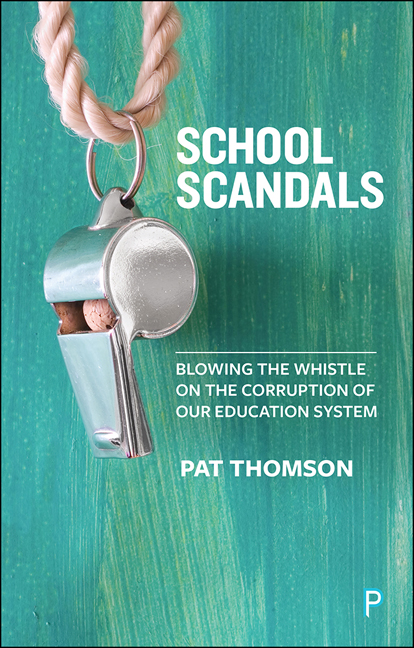Book contents
- Frontmatter
- Dedication
- Contents
- List of Tables and Boxes
- Glossary
- Acknowledgements
- Preface
- 1 A Book about Corruption in Schools
- 2 A Scandalous Schooling Muddle
- 3 Reforming Public Infrastructure
- 4 Costly Measures
- 5 Market Mentalities and Malpractices
- 6 The Effects of Effectiveness
- 7 Secrecy, lies and Gaming
- 8 Rebuilding Organisational Infrastructure
- 9 A Public Good Agenda for Change
- Notes
- Bibliography
- Index
3 - Reforming Public Infrastructure
Published online by Cambridge University Press: 25 February 2021
- Frontmatter
- Dedication
- Contents
- List of Tables and Boxes
- Glossary
- Acknowledgements
- Preface
- 1 A Book about Corruption in Schools
- 2 A Scandalous Schooling Muddle
- 3 Reforming Public Infrastructure
- 4 Costly Measures
- 5 Market Mentalities and Malpractices
- 6 The Effects of Effectiveness
- 7 Secrecy, lies and Gaming
- 8 Rebuilding Organisational Infrastructure
- 9 A Public Good Agenda for Change
- Notes
- Bibliography
- Index
Summary
British bureaucracy is growing out of control
Philip Jones, former head of the Confederation of British Industry, reported in The Telegraph, 18 January 2009Scrapping regional bureaucracy will save millions
Communities and Local Government Secretary Eric Pickles, 17 June 2010Politician's love/hate relationship with quangos
BBC News, 14 October 2010,/so>The UK's civil service needs reform for government to work better Chris Johnston, Opinion Column,
The Guardian, 15 December 2013Civil service stressed and floundering amid Brexit paralysis
The Guardian, 13 March 2019Government and governing depend on a sound organisational infrastructure. Anti-corruption measures often target government administration, leadership and management. A central administration can be both a source of corruption – through, for instance, cronyism and bribery – as well as a means of tackling corruption in wider society. But governing infrastructure can also be corrupted – where the consequences of organisational practices work counter to public expectations, entitlements and policy promises.
Chapter 2 introduced ‘the education muddle’ and the early 20th-century development of a unified three-tier school system: a central administration, a middle tier of local authorities, and schools. This central administration – the bureau – was itself a response to corruption. By the time Sidney Webb wrote about the need to rationalise the schooling and local authority muddle, the British central civil service administration had been reformed; it was ready and able to do the coordination and planning work he proposed.
This chapter addresses the history of schooling again, but this time focusing directly on organisational infrastructure and changes to it. I take as my premise that a school system is not just schools and a middle tier, but it is how three tiers work together that matters. The first part of the chapter signposts the development of the top tier, the central bureau, highlighting the processes and structures intended to prevent not only corruption but also inefficiency and ineffectiveness. I then show how growing concerns about efficiency and effectiveness, sometimes also seen as integral to equity, paved the way for the introduction of a new form of public management: governing at a distance.
- Type
- Chapter
- Information
- School ScandalsBlowing the Whistle on the Corruption of Our Education System, pp. 43 - 66Publisher: Bristol University PressPrint publication year: 2020



